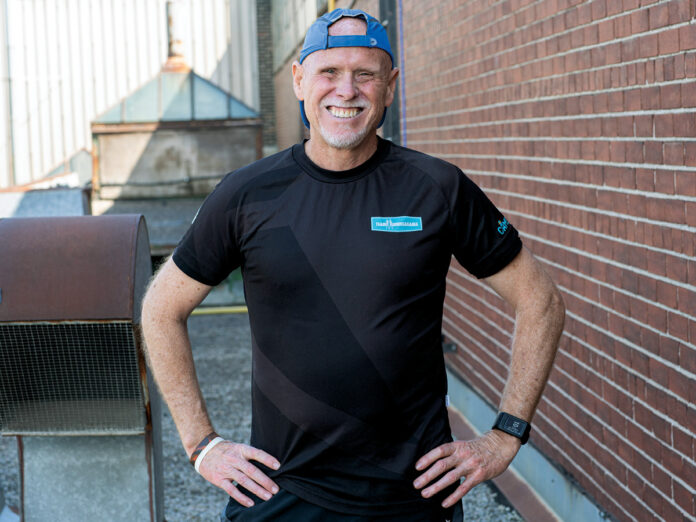
“Running literally saved my life,” says David Harris of Mississauga, ON.
It’s a bold statement, born from the grief of a bereaved father, and David Harris doesn’t shy away from it. In 2005, his 19 year-old son, Cameron, committed suicide, leaving a wake of sorrow within the family. Running became an outlet for Harris’ grief, literally saving his life.
“At least I could go out and go for a run and just either ball my eyes out or — it didn’t really matter — but at least I was doing something,” says Harris, who completed his first marathon just three months after the tragedy. He then resolved to run 19 consecutive Mississauga Marathons, each representing a year of Cameron’s life. He completed his 15th marathon this spring.
In addition, Harris’ used his grief as a springboard for bringing positive change to thousands of young lives through Team Unbreakable, a school program he founded in 2005 to prevent teen suicide by promoting the benefits of running for mental health.
“The whole premise behind it is to be proactive and that if there is a student perhaps that has suicidal thoughts or is suffering from depression or anxiety and so on, that they reach out early instead of late,” says Harris.
Team Unbreakable adopted a non-competitive running program in 2009 which allows participants to observe firsthand the emotional benefits of running. During the ten week program, which culminates in a 5km celebration run, each child records their mood on a scale of one to ten at the beginning and end of each run.
Executive Director of Team Unbreakable Hugh Williams says it’s this ability to effectively prove the connection between running and mood which is the program’s ‘secret sauce.’
“It’s not just anecdotal anymore… you’ve committed it to paper,” he says of the method’s ability to map feelings.
Today, Team Unbreakable is in 170 schools in Ontario and has seen more than 10,000 kids take part, a remarkable achievement.
Despite completing 15 marathons to date and being heavily involved in Team Unbreakable, Harris wasn’t always a runner.
In fact, just two years prior to Cameron’s death, Harris was borderline diabetic, overweight and struggling with his mental health. Recognizing a need for change, he began exercising consistently — it was during this time that he began to run — and experienced dramatic weight loss. But it wasn’t the physical benefits he noticed most.
“It was how I was feeling mentally, everything in my life was getting better,” he says.
Without this newfound understanding of the correlation between physical and mental health, Harris believes suicide may have ended his own life after Cameron’s death.
“I really look back and if I was still… in the shape that I was in at that time, I don’t think I’d be talking to you today,” says Harris.
Today, Harris occupies a volunteer coaching position and speaks at high schools and community associations, where he describes how running saved his life. It’s been a remarkable journey for Harris and thanks to his resiliency and determination, Team Unbreakable is making a difference to thousands of youths.
Lead image by Dave Laus















